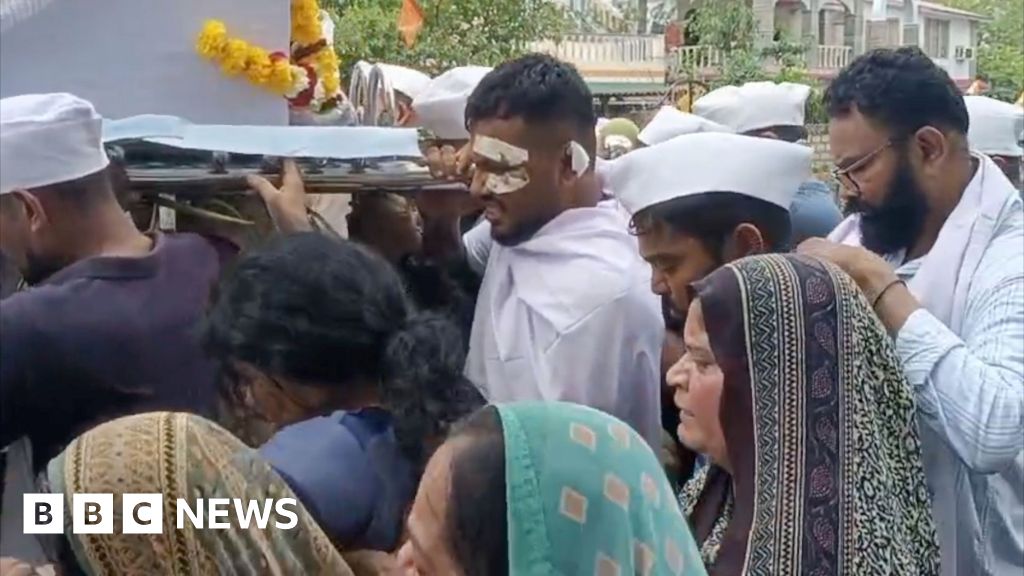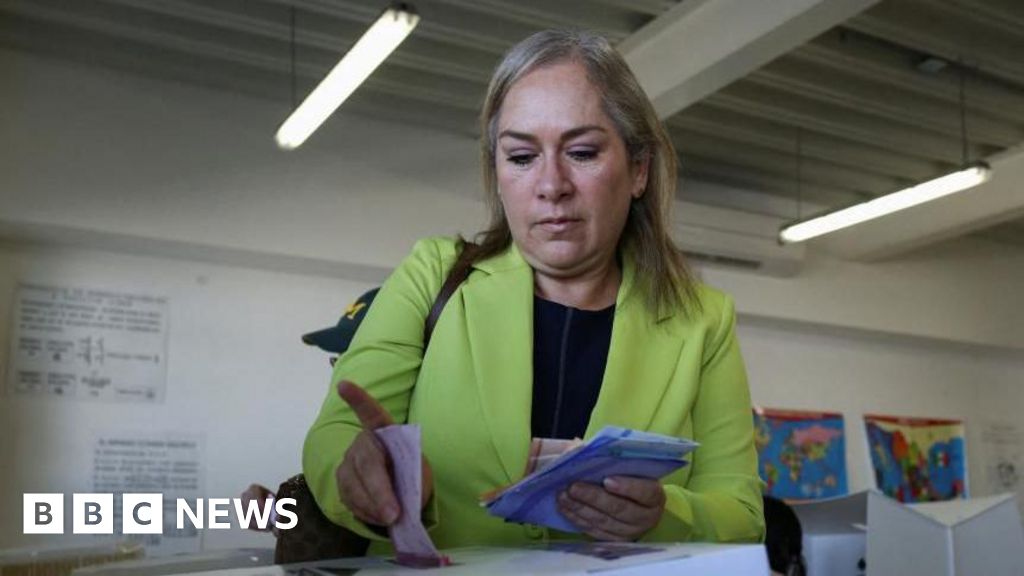ARTICLE AD BOX
Image source, Press Association/Julien Behal
Image caption,Micheál Martin said the risks of going into the Christmas period without some further restrictions was "just too high"
Irish nightclubs are to shut again and the hospitality sector faces tighter rules over Christmas as the government tries to curb the spread of Covid-19.
Taoiseach (Irish PM) Micheál Martin announced a number of new restrictions in a televised address on Friday night.
Indoor events such as concerts and sports fixtures must operate at 50% capacity and visits to private homes must involve no more four households.
The latest rules will stay in place from 7 December until 9 January.
The Irish government took the decisions at a cabinet meeting on Friday after advice from the chief medical officer and the National Public Health Emergency Team (NPHET).
Mr Martin said the "risks associated with proceeding into the Christmas period without some restrictions to reduce the volume of personal contacts is just too high".
What rules are changing?
Many of the restrictions which applied to pubs, hotels and restaurants prior a relaxation of Covid rules on 22 October will now be reimposed for the Christmas and New Year period.
- a table service only rule, which means customers cannot queue at a bar for drinks
- social distancing rules are being reintroduced with a minimum of 1m (3ft) between tables
- a maximum of six adults can sit together at a table
- there is a ban on multiple table bookings
- masks be worn when not at the table
There had been speculation that closing time would be brought forward to 11:30 local time but the taoiseach confirmed that would remain at midnight.
Image source, Getty/10'000 Hours
Image caption,Restaurants and bars will return to table service only until the new year
The Republic of Ireland is already operating the EU Covid pass system for the hospitality industry in which people need proof of Covid status to enter certain venues.
Mr Martin said the pass would also now be required for gyms and leisure centres as well as hotel bars and restaurants.
New restrictions will apply to entertainment, cultural and sporting events - attendance numbers will be reduced to 50% capacity and the venues must be fully seated.
Financial support
Mr Martin acknowledged that many people in the hospitality and entertainment industries "will be bitterly disappointed by this news" and that "many of them will be fearing for their livelihoods".
"I want to reassure them that, just as we have done since the beginning of the pandemic, the government will stand by them and ensure that they have the financial supports necessary to weather this latest storm and to stay intact until we are out of it," he said.
The taoiseach described the emergence of the Omicron variant in South Africa as a "cause for concern" and disappointing twist in the pandemic.
"Just a few weeks ago South Africa was reporting approximately 300 cases per day. Yesterday it reported 11,500 new cases," he said.
Mr Martin said experience had shown that while restrictions on travel were "useful to delay the entry of new variants, it is impossible to stop them".
Image source, Getty Images
So far the Republic of Ireland has only one confirmed Omicron case but Mr Martin said there was "potential for a very serious crisis" if the new variant proved to be more transmissible.
"Further study and examination in the weeks ahead may discover that Omicron does not represent a more deadly threat," he said.
"If that is the case it will come as a great relief to us all, but we simply cannot take that risk with people's lives and health."
'Most vaccinated population'
Mr Martin said the latest measures were precautionary and insisted they were not a return to lockdown.
"Large sections of our society and economy are open and thriving," he said.
He described the Republic of Ireland as having the "most vaccinated population in Europe" and praised young people in particular for the sacrifices they had made to date.
"You are a very special generation," he told them.
"And you have done it not for yourselves but for your parents, your grandparents, your community and your country."
Travel rules
Earlier, the Irish government delayed by 48 hours a requirement for a negative Covid-19 test for passengers arriving at ports and airports in the Republic of Ireland.
From Monday, travellers must show results from a lateral flow test taken up to 48 hours before arrival or a PCR test taken up to 72 hours earlier.
Image source, steved_np3/Getty
Image caption,Passengers arriving into Irish airports and ports will need to show proof of a negative test from Monday
There will be no exception for the Common Travel Area, so the rule will apply to visitors from Great Britain.
Children aged 11 and under will be be exempt as will some other categories.
Airlines and ferry companies are in talks with the Department of Transport to discuss checks before people board Ireland-bound flights or boats.
The new travel rules were criticised by Ryanair boss Michael O'Leary as "gobbledygook".
"We note that neither the chief medical officer nor the government have defined what a 'professionally-done' antigen test means or look like," he said.
"How are airline or border control staff supposed to understand what a professionally done antigen test is, or looks like, when neither the chief medical officer nor the government have even defined it?" he added.
In his address to the nation on Friday night, the taoiseach acknowledged there had been problems with some Covid policies.
"We haven't always got it right, and there have been times of great frustration," he said.
But, every time we have faced a new challenge we have pulled together as a nation and done what was needed. I'm asking us all to do that again."
Meanwhile, the Health Amendment Bill - which includes a return of mandatory hotel quarantine - passed all stages in the Dáil (Irish Parliament) on Thursday night.
It will go before the Seanad (Irish senate) later and will be voted before being signed into law by President Michael D Higgins.
There are no countries named in the legislation - that will be decided by the health minister.

 3 years ago
52
3 years ago
52








 English (US) ·
English (US) ·